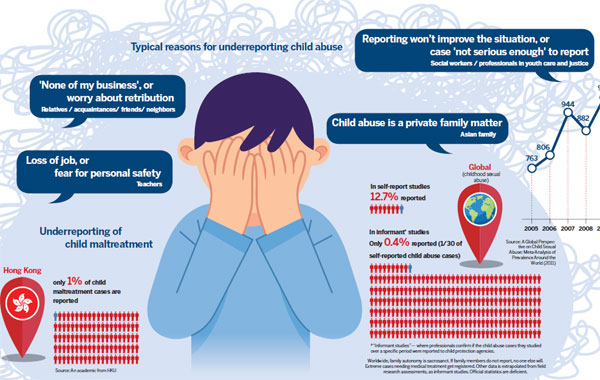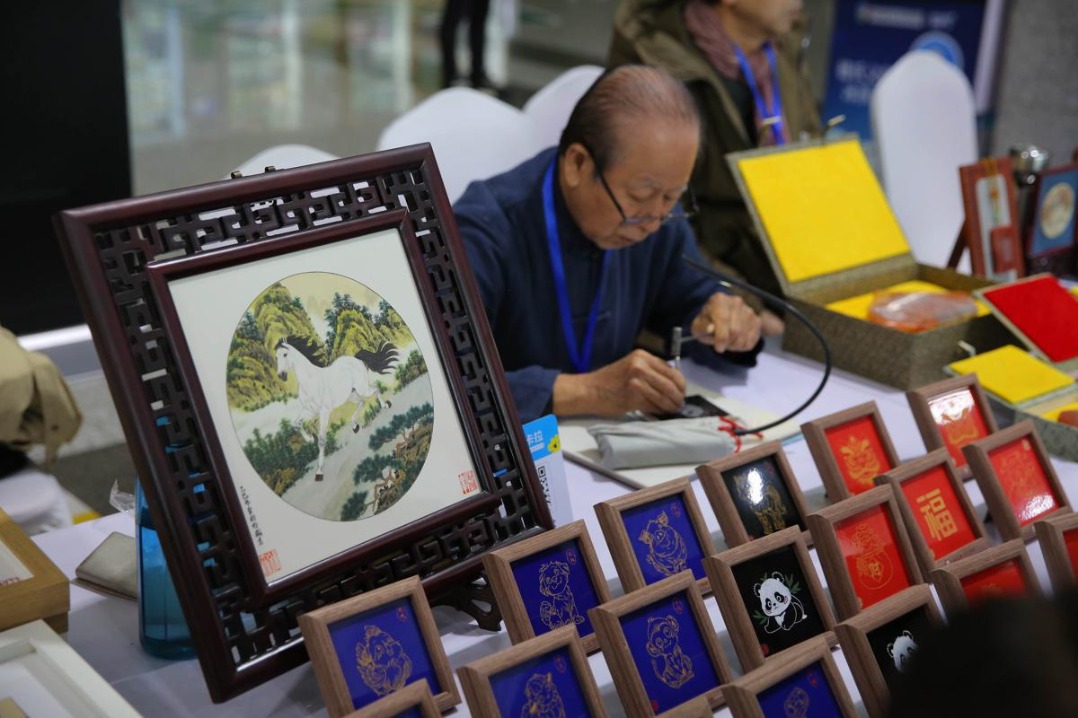Child abuse figures are tip of the iceberg


A university researcher estimates that Hong Kong registers 1 percent of its child abuse cases. Globally, about 0.4 percent of child sexual abuse cases are reported. Reluctance to intervene, lack of faith in outcomes, and absence of effective resolution mechanisms are cited as reasons.
A university researcher estimates that Hong Kong registers 1 percent of its child abuse cases. Globally, about 0.4 percent of child sexual abuse cases are reported. Reluctance to intervene, lack of faith in outcomes, and absence of effective resolution mechanisms are cited as reasons. Wang Yuke reports from Hong Kong.
Domestic child abuse is a family problem. Society becomes aware of an abused child when someone outside the family reports it to the police, or to a social worker. Teachers are usually the first to notice when a child is abused. The parents may be called in for a discussion. Does that solve the problem? Teachers are not trained child abuse counselors, nor is it their position to intervene in family distress.
Neighbors are disinclined to report. What happens within the closed walls of homes is regarded as nobody else's business. The child is forsaken by social convention to routine abuse. Children learn to accept it. Parents are authority figures. Child abuse, like spouse abuse, is far more prevalent than the official statistics indicate. Only extreme cases involving serious injury or death come to the notice of the authorities. The vast majority of child abuse occurs below the social radar. This is not unique to Hong Kong.
Children with special needs, such as attention deficit hyperactivity disorder, are more likely to encounter physical abuse, said Abbie Cheung, a social worker with the Boys' and Girls' Clubs Association of Hong Kong. Their tendency to disobey, misbehave, and not sit still can easily irritate their parents.
Stressed parents may resort to violence. Parents with such problematic children are also burdened by feelings of guilt, inadequacy, and hopelessness. They may resort to drugs, alcohol, or computer games to escape the reality, which increases the likelihood of more violence, Cheung said.
- Xinjiang reports highest foreign trade growth in China
- Harbin authorities demand return of pensions paid out to deceased
- Global research project on AI guardrails launched in Beijing
- Partnering with China, embracing opportunities
- China's cyberspace regulators announce measures for protection of minors
- Beijing's 'Rocket Street' promoted at aerospace conference



































